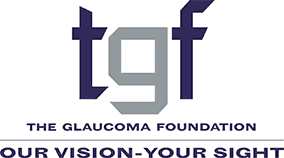~4 Ways to Prevent Vision Loss from Glaucoma~ Inarguably, glaucoma is one of the most severe eye conditions today. Described by the Centers for Disease Control and Prevention (CDC) as a group of ocular diseases that damage the optic nerve, glaucoma affects over three million nationwide. Furthermore, glaucoma is particularly dangerous because it can strike any demographic. In fact, even
Author: Andrea Steele
Doctor, I Have a Question. As an eye doctor, if you had glaucoma, how would you like to be treated?
~Doctor, I Have a Question. As an eye doctor, if you had glaucoma, how would you like to be treated?~ Question answered by: [caption id="attachment_7525" align="aligncenter" width="200"] Dr. Nathan M. Radcliffe, MD Attending Physician, New York Eye Surgery Associates, PLLC Clinical Assistant Professor of Ophthalmology, Mt. Sinai School of Medicine[/caption] One of the things that comes up between glaucoma experts
Message From The President
~Message From The President~ [caption id="attachment_4725" align="aligncenter" width="200"] Elena Sturman, President & CEO The Glaucoma Foundation[/caption] 2024 marks the 40th anniversary of the founding of The Glaucoma Foundation. What important strides have been made over these decades! Through research, we have improved our understanding of the disease and worked toward achieving the cessation of blindness from glaucoma. We are proud
New Technologies Emerge for Glaucoma Diagnosis and Treatment
~New Technologies Emerge for Glaucoma Diagnosis and Treatment ~ Glaucoma, a condition that damages the eye’s optic nerve, is one of the leading causes of blindness in the United States. According to a report on current glaucoma programs by the Centers for Disease Control and Prevention (CDC), over three million Americans have glaucoma, and the number is expected to double
Winter Can Wreak Havoc On Your Eyes
~Winter Can Wreak Havoc On Your Eyes ~ Fortunately, following a few tips can help keep your eyes safe. Heaters and dry wind can aggravate dry eyes during the winter months. Dry eye syndrome, particularly common among older adults, is mostly caused by a deficiency in the tear glands, and a common preservative in many glaucoma medications can worsen the symptoms.
January is Glaucoma Awareness Month, Let’s Dispel Some Myths
~January is Glaucoma Awareness Month, Let’s Dispel Some Myths ~ Have you made a resolution to have your eyes checked for the new year? Early diagnosis and treatment are key to controlling this “sneak thief of sight.” The notion that people can tell if they’re developing glaucoma is one dangerous myth about the disease. Here are some others. Myth 1: Your
Early Detection Remains Key in Treating Glaucoma
~Early Detection Remains Key in Treating Glaucoma ~ Glaucoma is one of the leading causes of blindness in America. Yet, the diagnosis rate of glaucoma represents only 30–50% of total cases. This underscores the silent nature of this condition, with estimations showing an annual growth rate for glaucoma cases of 2.8% to reach 4.6 million by 2030. Despite its manageable nature, the condition's
Doctor, I Have a Question. My glaucoma doctor uses different imaging devices during my eye exams. What does each of them do?
~Doctor, I Have a Question. My glaucoma doctor uses different imaging devices during my eye exams. What does each of them do?~ Question answered by: [caption id="attachment_3457" align="aligncenter" width="174"] Gregory K. Harmon, MD Board Chairman of The Glaucoma Foundation[/caption] Your eye doctor has a range of sophisticated tools to help diagnose glaucoma and measure its progression. Since optic nerve damage
Message From The President
~Message From The President~ [caption id="attachment_4725" align="aligncenter" width="250"] Elena Sturman, President & CEO The Glaucoma Foundation[/caption] During this special season of Thanksgiving, I want you to know how grateful we at TGF are for you, our friends and supporters, who make our research and educational initiatives possible. You are vital to our work and deeply appreciated! We have just concluded
Easy Head-to-Toe Health Strategies for Everyday Life
~Easy Head-to-Toe Health Strategies for Everyday Life~ Living a healthy lifestyle doesn't have to be complicated – even if you have glaucoma! In fact, incorporating small changes into your daily routine can lead to significant improvements in your overall well-being. Today, The Glaucoma Foundation explores some simple yet effective head-to-toe health strategies that you can easily integrate into your everyday

